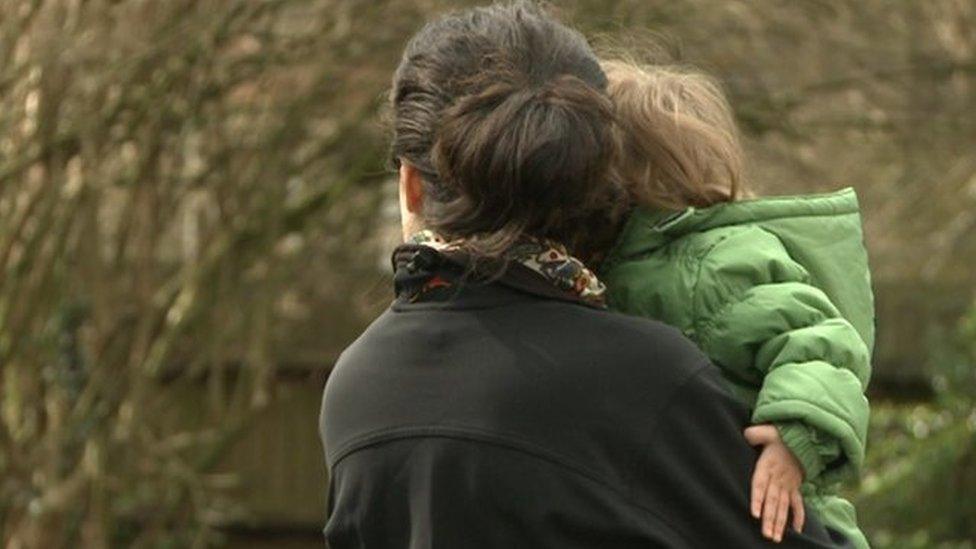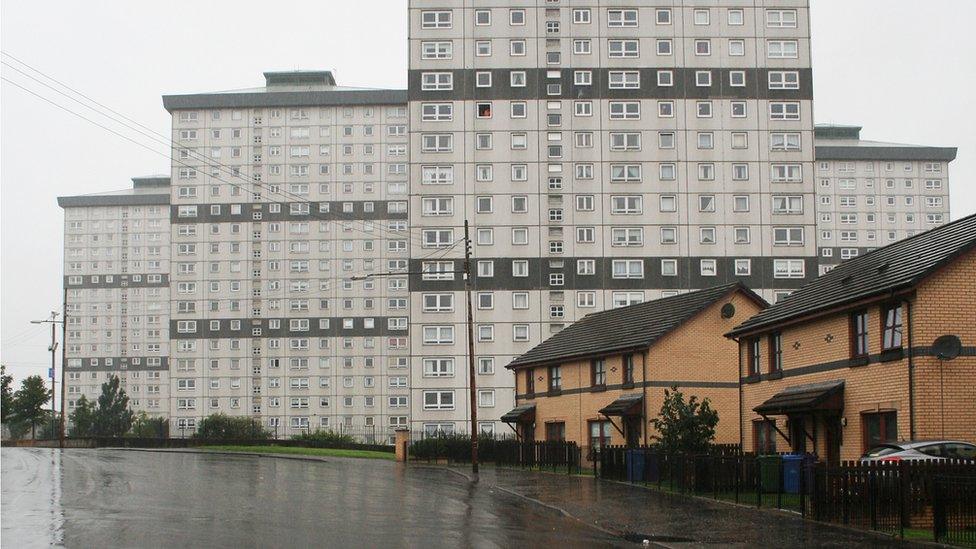'Intense' child poverty in affluent areas of Scotland
- Published
- comments

There are pockets of "intense" child poverty among the most affluent areas of Scotland, new analysis has found.
While East Renfrewshire has some of the most prosperous communities in the country, the local authority includes Arthurlie and Dovecothall, where 54.9% of children live in poverty.
Researchers from Glasgow Caledonian University found similar inequality in Aberdeenshire, Orkney and Shetland.
They said two-thirds of those classed as poor lived outside "deprived" areas.
Prof John McKendrick, who led the research, said it demonstrated the limits of focusing anti-poverty strategies only in the most deprived areas.
He said there were almost 100 known "datazones" in Scotland where the majority of children were living in poverty. They included the North Barlanark and Easterhouse South areas of Glasgow where more than 70% children were growing up in poverty.
However, his study also found that even in local authorities with the lowest levels of child poverty, there were areas where more than one in every four children were living in deprived circumstances.
These included Hillhead in Kirkintilloch, East Dunbartonshire - where 36.9% were in poverty, Peterhead Harbour in Aberdeenshire - where the figures was 31.5%, Lerwick South in Shetland - where 26.2% were in poverty and Stornoway West, with 27.1% in poverty.

Up to one in four children in areas with low poverty levels are living in poverty
Prof McKendrick said: "Although it would be misleading to claim that poverty is 'everywhere' in Scotland, the evidence suggests that it is far more widespread than might be expected.
"Even within those local authorities with the lowest levels of child poverty in Scotland, there are pockets of intense child poverty in which more than one in every four children are living in poverty.
"This suggests that even in most of the affluent neighbourhoods there are some people who are living on an income that means that they are not able to afford what the majority of people in Scotland would agree that the majority should be able to afford."
'Classed as poor'
Prof McKendrick said the most "powerful tools" for tackling poverty lay with the UK government and its capacity to set tax and welfare payments.
However, Scotland 32 councils are required to develop local action plans to tackle the issue following the passing of the Child Poverty Bill at Holyrood in November.
Areas are assessed as deprived by considering their housing, health, education, and employment levels.
But if the measure was based on income alone, two-thirds of those classed as poor would live outside a deprived area, the study found.
The analysis is contained in a briefing paper for the independent Poverty and Inequality Commission and coincides with the launch of a poverty and inequality research unit at the university.